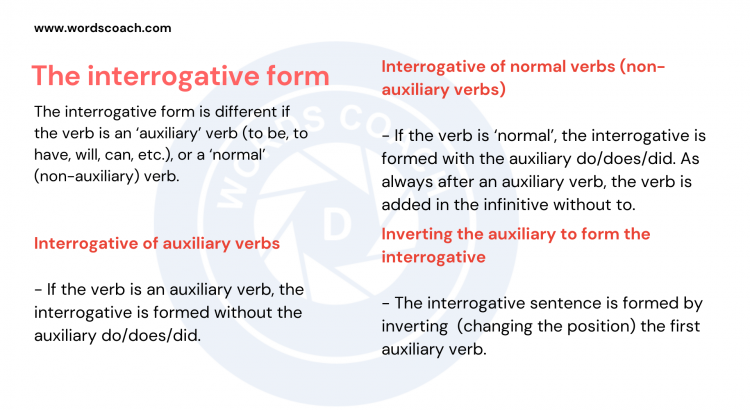The interrogative form is different if the verb is an ‘auxiliary’ verb (to be, to have, will, can, etc.), or a ‘normal’ (non-auxiliary) verb.
Interrogative of auxiliary verbs
- If the verb is an auxiliary verb, the interrogative is formed without the auxiliary do/does/did.
Example:
- Are you Japanese?
- Can I ask you a question?
- Can I talk to you?
- Have you read this book?
Interrogative of normal verbs (non-auxiliary verbs)
- If the verb is ‘normal’, the interrogative is formed with the auxiliary do/does/did. As always after an auxiliary verb, the verb is added in the infinitive without to.
Example:
- Did she see the movie?
- Do you speak English?
- Does Rubina live in USA?
- Do you like that album?
Inverting the auxiliary to form the interrogative
- The interrogative sentence is formed by inverting (changing the position) the first auxiliary verb.
Example:
- You would tell me. => Would you tell me?
- You can swim. => Can you swim?
- Fenil is lucky. => Is Fenil lucky?
Note: The ‘normal’ verb to do is also conjugated with the auxiliary do/does/did.
Example:
1. Does he do his homework on time?
– In the case of interrogatives introduced by pronouns (Who, What)
- If the interrogative pronoun is a subject, there is no inversion:
- Who told you this?
- Who is here?
- If the interrogative pronoun is an object, there is an inversion:
- What did he say?
- What are you thinking about?
Related Blog
What are interrogative adverbs?

